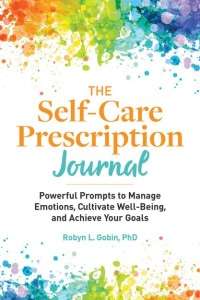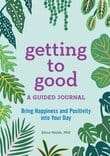
There are different types of journals. Some people use journals to record their thoughts and feelings. Other people use journals to plan things out or to track their progress on goals. Journaling prompts for mental health can help us focus more on our mental health and wellbeing.
Journaling can help us improve our lives in many different ways. For example, it can help us track our behavior, understand ourselves better, and explore our thoughts and feelings. This allows us to keep moving forward.
Still, we understand that there are times when it feels so daunting to look at a blank page that we can’t find the right words to start a journaling session.
So in this post we’ll also share journals with prompts to make it easier for you to start writing about your thoughts and behaviors. This can help you become more clear and see things in a new light.
What Do You Write In A Mental Health Journal?
Before anything else, let us first explore the different topics you can write in a mental health journal.
These will give you an idea of what you can do regardless if you have a prompt or not.
According to Mental Health America, here’s what a mental health journal can contain:Notes and observations on the negative thoughts that might be holding you down
- Actions you can take to counter these negative thoughts
- Mood trackers and the particular triggers that have possibly influenced your emotions
- Progress trackers, especially if you’re undergoing treatment
- Symptom records along with the time, date, and trigger (if any)
- Prescription trackers and their effects (if any)
Why Writing Is Good For Your Mental Health
In an article published by the University of Rochester Medical Center, it was found that journaling has several mental health benefits, such as:
• Anxiety Management
Writing down the thoughts that continuously worry you not only frees your mind from their burden.
At the same time, it can help you take a step back and separate yourself from them to get a more distanced and level-headed assessment.
• Stress Reduction
The act of putting your burdens into words can already be a liberating feeling that can significantly reduce negativity and stress.
It can also help you identify any stress triggers you might not be aware of and plan how to deal with them accordingly.
As mentioned, having a journal dedicated to your mental health can help with any treatment you might be undergoing.
You can use it to keep track of symptoms, triggers, episodes, and even prescriptions. You can also use it as a reference for your next consultation.
However, it is worth noting that journaling is only a single step towards better mental health.
To make the most out of it, we recommend combining journaling with other healthy habits, like daily meditation, healthy eating, and regular exercise.
What Are Some Good Journal Prompts?
Prompts are typically posed as questions that urge you to reflect on what’s happening and inspire you to write.
For your ease of reference, we will be dividing our prompts into three categories:
- General mental health journal prompts (geared towards anxiety and mental health issues),
- Personal journal prompts (focused more on your current personal experiences), and
- Therapeutic journal prompts (which help you manage episodes and symptoms).
Journal your way to positive thinking.
How can you turn a bad day into a better one? What does it take to go from feeling negative to being positive? Grab a pen, open this guided journal and find out.
Getting to Good is your road map to feeling better, happier, and more present with proven-effective therapeutic exercises and journaling prompts.
Journal Writing Prompts For Mental Health

Here are some writing prompts and ideas that you can use in your journal for mental health and wellbeing:
• Mental Health Journal Prompts
1. How are you feeling?
Close your eyes and make an inventory of all the emotions you are feeling right now.
What is the most overwhelming or powerful among them? Why do you think that is?
2. What are your most negative and positive thoughts right now? Try to reflect and write about them in detail.
3. Remember your first panic attack. Describe it in detail.
What triggered it? Do you still remember how it was like? How did you find relief from it?
4. How do you deal with your mental health issues?
Have you learned of any new ways to deal with them?
What do you think you can do to manage them if you suffer from another episode?
5. What triggers your episodes? Do you feel more anxious at home or outdoors?
Would you rather be left alone during your episodes, or do you find the presence of other people comforting?
Are your mental health issues tied to any memory or past experience? Are there people you don’t feel comfortable being with?
6. Is there a silver lining to your condition? Is there a positive side to having anxiety?
• Personal Journal Prompts
1. List down the things that made you feel happy and positive today. Did something make you smile?
What are the things that you are most grateful for right now?
2. List down the things you are feeling stressed about. Separate those you have control over from those you don’t.
If you believe that you control some (or all) of them, what can you do right now to take action and relieve your stress?
3. List down the things you love right now. Is there a particular hobby you enjoy and can take your mind off things?
4. Are there any songs, movies, or activities you find helpful in cheering you up? If yes, what are they? Make a separate list for each category.
5. What is an ideal day like for you? What do you need to do to live your life this way?
6. Write a letter to your future self while envisioning a better, more positive you.

• Therapeutic Journal Prompts
1. Are you feeling anxious right now?
Write down the reasons why and then close your eyes and slowly count to 100. Write down how you feel after.
2. Have you tried meditation? How was your experience?
Were there any thoughts that kept you from focusing? What were they about?
3. Name three things you can do to improve how you’re feeling right now.
4. Name three people who can help you cope with stress. What makes their presence calming for you?
5. Name three things (or people) you can let go from your life to improve your mental health.
6. Do you know someone going through the same mental health journey as you? How is he handling it?
Does he have any methods that might help you out as well? If so, how can you put them into practice?
How Do I Journal Daily For Anxiety?
You’re probably ready to start your journey with the journaling prompts for mental health we just shared.
Hence, here is a quick guide to building a daily journaling habit for your mental health:

Decide On Your Journaling Medium
The first thing you need to do is determine the journaling method or medium that fits your needs and preferences.
You can either settle on a traditional notebook-type journal or opt for a mobile application to put on your phone instead.
As long as your app allows you to access your entries easily, both methods will be equally effective.
It will simply boil down to how often you’re going to use them.
Turn It Into A Habit
You can latch this new journaling habit to an already established one to make it easier to remember.
For instance, if you always drink coffee in the morning, it might be a good idea to journal as you are drinking or right after.
Connecting journaling to this habit will make the new practice easier to remember and follow.
Use The Pomodoro Technique
Keep your mind focused on the task by setting a 20- to a 30-minute timer as you are journaling.
Doing this will give you a sense of urgency and motivate you to capture thoughts faster.
Not only that, but it will also force you to continue writing in case you run out of words halfway through the time.
Use Ready Made Journal Prompts For Mental Health
Don’t stress yourself out even further by forcing your mind to come up with ideas on what to write in your journal.
Instead, make use of the journal prompts we shared or find ideas elsewhere. The Internet is teeming with journaling prompts.
Reread Your Entries
Finally, don’t forget to reread your entries. This step is a crucial part of making this practice work. This step also shows you any improvements you’ve made along the way.
Doing this can help you understand yourself better. You can also see what behaviors still need work. Journaling also helps with the type of ways you can deal with the challenges, giving more clarity and light on the situation at hand.
Quick Disclaimer:
Even though journaling has been used as a therapeutic tool, it still does not come close to what professional help can do.
Please do not hesitate to get in touch with your doctor if your burdens become too much for you to handle alone.
There are various interventions that can help you towards a better, brighter, and more positive future.
Disclaimer: Our web pages and blog posts provide general information for general purposes only and not to be used for any medical, legal or alternative health advice for any type of physical, mental health or financial concerns.Always speak to your practitioner before embarking on any new alternative treatments. If you have concerns about any medical matters, you should always consult your healthcare provider without delay.We thank you for taking full responsibility for your own health and wellbeing in life. ☺











